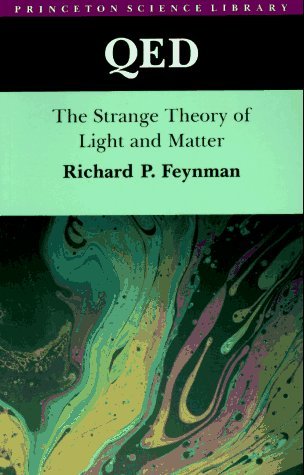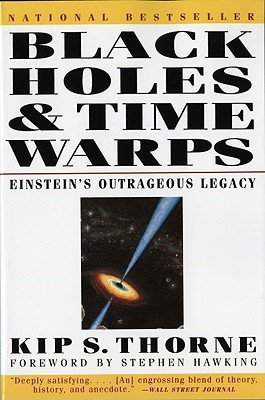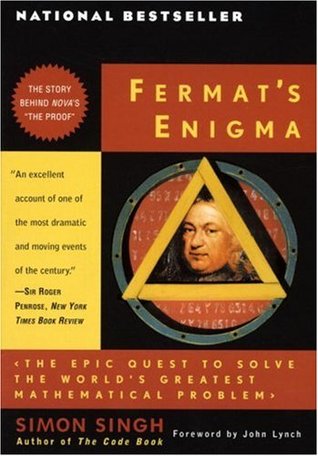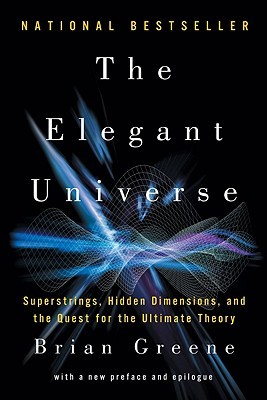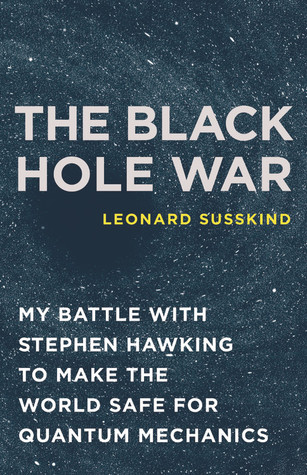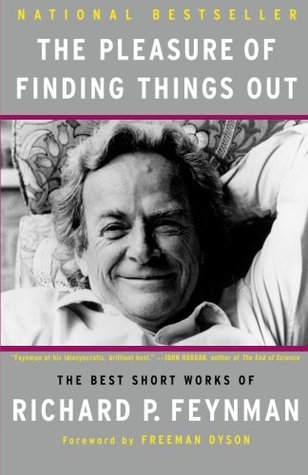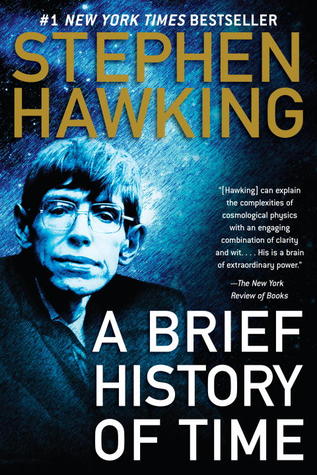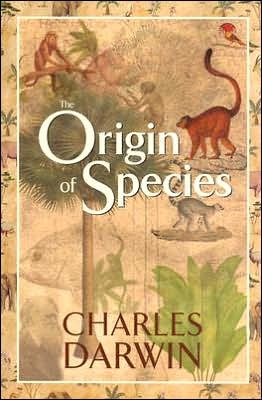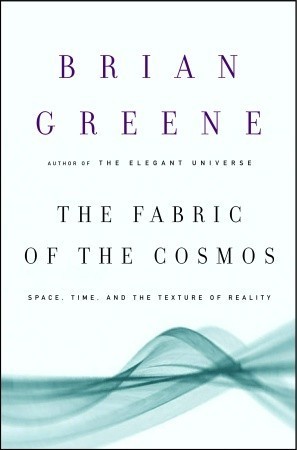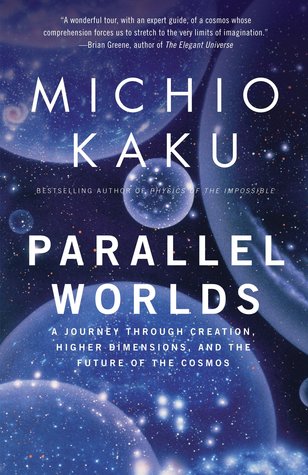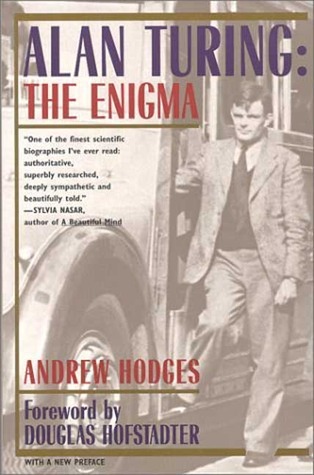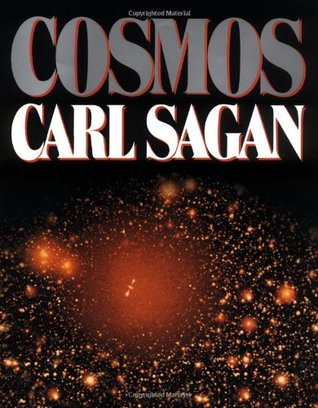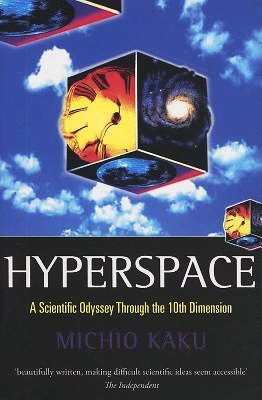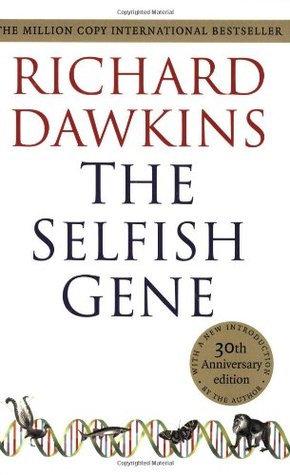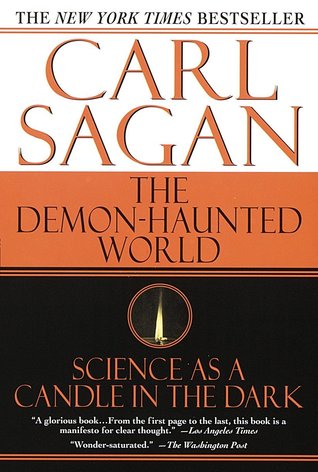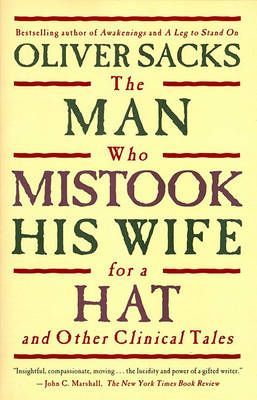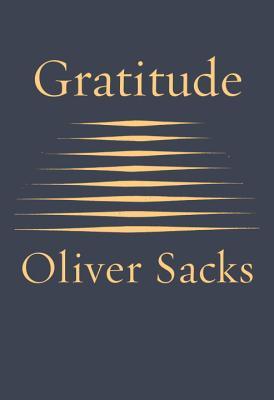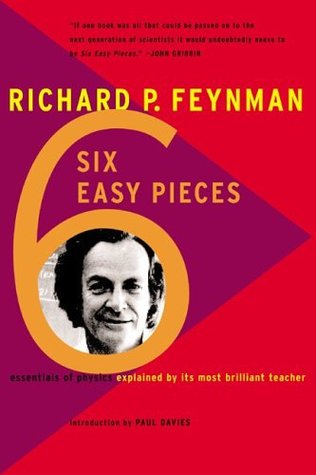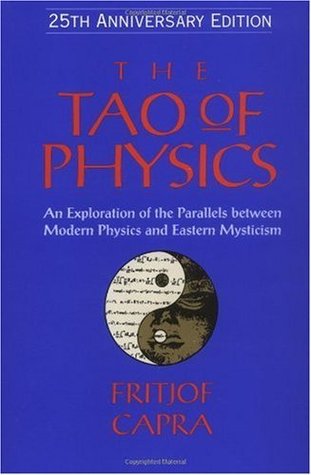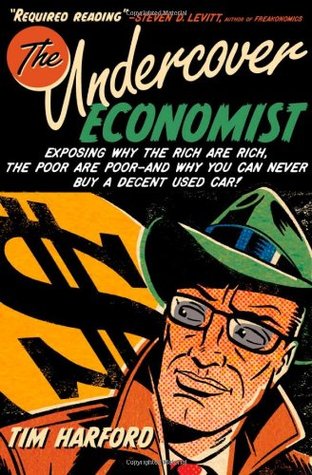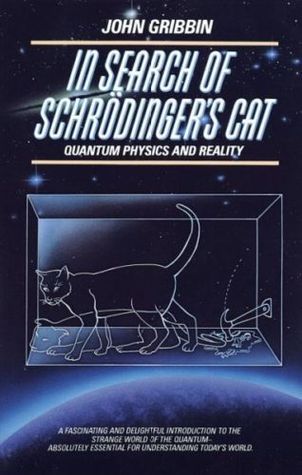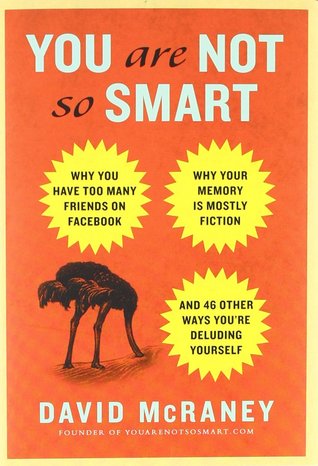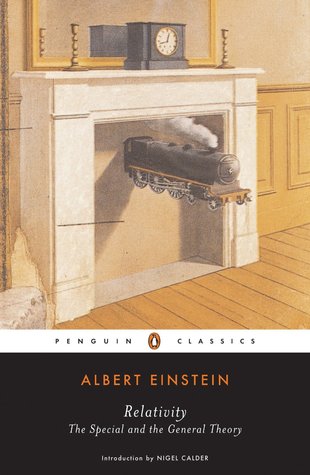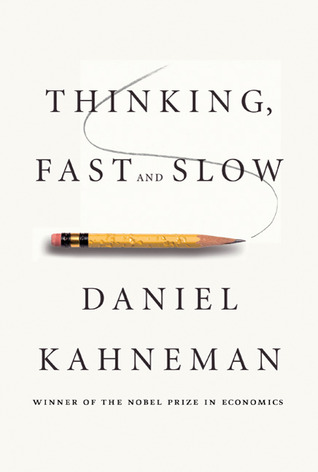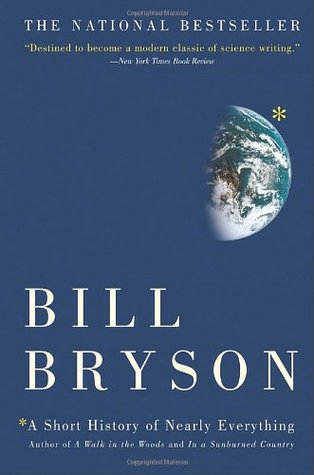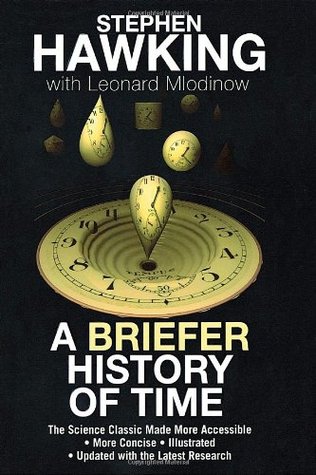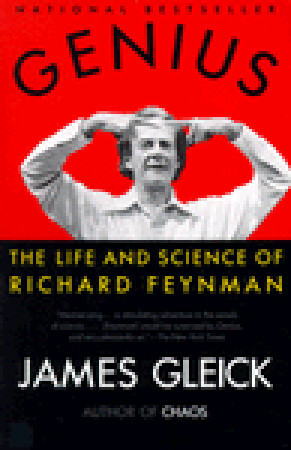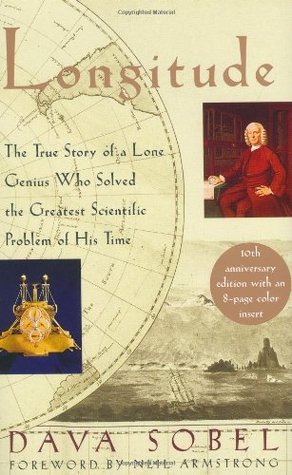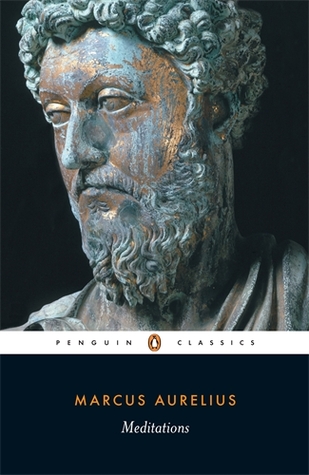Powered by a book like {foo}
Recommendations based on The First Three Minutes: A Modern View of the Origin of the Universeby Steven Weinberg
* statistically, based on millions of data-points provided by fellow humans
QED: The Strange Theory of Light and Matter
by Richard P. Feynman
Exploring the wave-particle duality of light and matter, and their implications for our understanding of the universe.
Famous the world over for the creative brilliance of his insights into the physical world, Nobel Prize-winning physicist Richard Feynman also possessed an extraordinary talent for explaining ... (Goodreads)
Black Holes & Time Warps: Einstein's Outrageous Legacy
by Kip S. Thorne
Exploring the strange and powerful effects of gravity and time, as predicted by Einstein's theories.
Ever since Albert Einstein's general theory of relativity burst upon the world in 1915 some of the most brilliant minds of our century have sought to decipher the mysteries bequeathed by that theory, ... (Goodreads)
Fermat's Enigma
by Simon Singh
Uncovering the centuries-old mathematical mystery of Pierre de Fermat's Last Theorem.
xn + yn = zn, where n represents 3, 4, 5, ...no solution "I have discovered a truly marvelous demonstration of this proposition which this margin is too narrow to contain." With these words, the ... (Goodreads)
The Elegant Universe: Superstrings, Hidden Dimensions, and the Quest for the Ultimate Theory
by Brian Greene
Exploring the hidden realms of physics, in pursuit of a unified theory of nature.
Brian Greene, one of the world's leading string theorists, peels away the layers of mystery surrounding string theory to reveal a universe that consists of eleven dimensions, where the fabric of ... (Goodreads)
The Black Hole War: My Battle with Stephen Hawking to Make the World Safe for Quantum Mechanics
by Leonard Susskind
A physicist's account of his debate with Stephen Hawking over the nature of black holes and the implications for quantum mechanics.
What happens when something is sucked into a black hole? Does it disappear? Three decades ago, a young physicist named Stephen Hawking claimed it did, and in doing so put at risk everything we know ... (Goodreads)
The Pleasure of Finding Things Out: The Best Short Works of Richard P. Feynman
by Jeffrey Robbins
A collection of essays and speeches by physicist Richard Feynman, exploring the beauty and wonder of science and the joy of discovery.
The Pleasure of Finding Things Out is a magnificent treasury of the best short works of Richard P. Feynman,from interviews and speeches to lectures and printed articles. A sweeping, wide-ranging ... (Goodreads)
A Brief History of Time
by Stephen Hawking
Exploring the depths of time and space and the emergence of the universe.
In the ten years since its publication in 1988, Stephen Hawking's classic work has become a landmark volume in scientific writing, with more than nine million copies in forty languages sold ... (Goodreads)
The Origin of Species
by Charles Darwin
Comprehensive scientific exploration of the evolution of species and the natural world.
Darwin's theory of natural selection issued a profound challenge to orthodox thought and belief: no being or species has been specifically created; all are locked into a pitiless struggle for ... (Goodreads)
The Fabric of the Cosmos: Space, Time, and the Texture of Reality
by Brian Greene
An exploration of space and time in the physical world, looking at the fundamental laws of the universe.
From Brian Greene, one of the world’s leading physicists and author the Pulitzer Prize finalist The Elegant Universe , comes a grand tour of the universe that makes us look at reality in a completely ... (Goodreads)
Parallel Worlds: A Journey through Creation, Higher Dimensions, and the Future of the Cosmos
by Michio Kaku
An exploration of the universe, its dimensions, and the possibilities of the future.
In this thrilling journey into the mysteries of our cosmos, bestselling author Michio Kaku takes us on a dizzying ride to explore black holes and time machines, multidimensional space and, most ... (Goodreads)
Alan Turing: The Enigma
by Andrew Hodges
Biographical exploration of the life and work of the British mathematician and computer scientist Alan Turing.
Alan Turing (1912-54) was a British mathematician who made history. His breaking of the German U-boat Enigma cipher in World War II ensured Allied-American control of the Atlantic. But Turing's ... (Goodreads)
Cosmos
by Carl Sagan
Voyage through the vastness of space, unlocking the mysteries of the universe.
Cosmos has 13 heavily illustrated chapters, corresponding to the 13 episodes of the Cosmos television series. In the book, Sagan explores 15 billion years of cosmic evolution and the development of ... (Goodreads)
Hyperspace: A Scientific Odyssey Through Parallel Universes, Time Warps, and the Tenth Dimension
by Michio Kaku
A journey into the unknown, exploring the possibilities of the mysterious world of higher dimensions.
Are there other dimensions beyond those of our everyday experience? Are there gateways to parallel universes? What happened before the first day of Creation? These types of questions are at the ... (Goodreads)
The Selfish Gene
by Richard Dawkins
A study of evolutionary biology, exploring how genes act and how they impact behavior.
Inheriting the mantle of revolutionary biologist from Darwin, Watson, and Crick, Richard Dawkins forced an enormous change in the way we see ourselves and the world with the publication of The ... (Goodreads)
The Demon-Haunted World: Science as a Candle in the Dark
by Carl Sagan
A critical look at superstition and pseudoscience, advocating for the power of science and reason.
How can we make intelligent decisions about our increasingly technology-driven lives if we don’t understand the difference between the myths of pseudoscience and the testable hypotheses of science? ... (Goodreads)
The Man Who Mistook His Wife for a Hat and Other Clinical Tales
by Oliver Sacks
A collection of case studies, illustrating extraordinary neurological phenomena.
If a man has lost a leg or an eye, he knows he has lost a leg or an eye; but if he has lost a self—himself—he cannot know it, because he is no longer there to know it. Dr. Oliver Sacks recounts the ... (Goodreads)
Gratitude
by Oliver Sacks
A collection of essays on the importance of gratitude in life, written by the renowned neurologist and author Oliver Sacks.
“My predominant feeling is one of gratitude. I have loved and been loved. I have been given much and I have given something in return. Above all, I have been a sentient being, a thinking animal, on ... (Goodreads)
Six Easy Pieces: Essentials of Physics By Its Most Brilliant Teacher
by Richard P. Feynman
Exploring the fundamentals of physics, from the perspective of one of the greatest minds of the 20th century.
Six Easy Pieces: Essentials of Physics Explained by Its Most Brilliant Teacher is a publishing first. This set couples a book containing the six easiest chapters from Richard P. Feynman's landmark ... (Goodreads)
The Tao of Physics: An Exploration of the Parallels between Modern Physics and Eastern Mysticism
by Fritjof Capra
An exploration of the connections between modern physics and ancient Eastern philosophies.
The Undercover Economist
by Tim Harford
A journey through economics, exploring the hidden forces that shape our lives.
An economist's version of The Way Things Work , this engaging volume is part field guide to economics and part expose of the economic principles lurking behind daily events, explaining everything ... (Goodreads)
In Search of Schrödinger's Cat: Quantum Physics and Reality
by John Gribbin
Exploring the mysterious implications of quantum physics and its potential for understanding the universe.
It is so shocking that Einstein could not bring himself to accept it. It is so important that it provides the fundamental underpinning of all modern sciences. Without it, we'd have no nuclear power ... (Goodreads)
You Are Not So Smart: Why You Have Too Many Friends on Facebook, Why Your Memory Is Mostly Fiction, and 46 Other Ways You're Deluding Yourself
by David McRaney
A humorous exploration of cognitive biases, irrational behavior and why humans deceive themselves.
An entertaining illumination of the stupid beliefs that make us feel wise. Whether you’re deciding which smart phone to purchase or which politician to believe, you think you are a rational being ... (Goodreads)
Relativity: The Special and the General Theory
by Albert Einstein
An exploration of the laws of relativity and their implications on science and philosophy.
An accesible version of Einstein's masterpiece of theory, written by the genius himself According to Einstein himself, this book is intended "to give an exact insight into the theory of Relativity to ... (Goodreads)
Don't Let's Go to the Dogs Tonight: An African Childhood
by Alexandra Fuller
An autobiographical account of a white family in Rhodesia, struggling to survive in a war-torn land.
Alexandra Fuller's book tells the story of her family of white Zimbabwean tenant farmers in the years before and after Independence. These are not the wealthy landowners demonised by the present ... (Wikipedia)
Thinking, Fast and Slow
by Daniel Kahneman
An exploration of the two systems of the mind, and how they influence decision-making.
In the highly anticipated Thinking, Fast and Slow , Kahneman takes us on a groundbreaking tour of the mind and explains the two systems that drive the way we think. System 1 is fast, intuitive, and ... (Goodreads)
A Short History of Nearly Everything
by Bill Bryson
A captivating overview of the natural sciences, spanning the history of the universe.
In Bryson's biggest book, he confronts his greatest challenge: to understand—and, if possible, answer—the oldest, biggest questions we have posed about the universe and ourselves. Taking as territory ... (Goodreads)
A Briefer History of Time
by Stephen Hawking
A concise overview of the history of the universe, from the Big Bang to the present day.
Stephen Hawking's worldwide bestseller, A Brief History of Time, has been a landmark volume in scientific writing. Its author's engaging voice is one reason, and the compelling subjects he addresses ... (Goodreads)
Genius: The Life and Science of Richard Feynman
by James Gleick
A biography of physicist Richard Feynman, exploring his life and scientific contributions to quantum mechanics and the Manhattan Project.
An illuminating portrayal of Richard Feynman—a giant of twentieth century physics—from his childhood tinkering with radios, to his vital work on the Manhattan Project and beyond Raised in ... (Goodreads)
Longitude: The True Story of a Lone Genius Who Solved the Greatest Scientific Problem of His Time
by Dava Sobel
Story of a man's determination to solve the complex problem of determining longitude at sea.
Anyone alive in the eighteenth century would have known that "the longitude problem" was the thorniest scientific dilemma of the day—and had been for centuries. Lacking the ability to measure their ... (Goodreads)
Meditations
by Marcus Aurelius
Reflections on Stoic philosophy, exploring the nature of existence and how to live life.
Written in Greek by the only Roman emperor who was also a philosopher, without any intention of publication, the Meditations of Marcus Aurelius offer a remarkable series of challenging spiritual ... (Goodreads)
